It was called Tom Hark and was by the wonderfully named Elias and his Zig Zag Jive Flutes.
The theme tune to a TV show called The Killing Stones it proved to be amazingly popular and was, undoubtedly, the first UK chart topper from Africa.
Tom Hark was kwela, a potent mix of jazz, highlife and rhythm and blues.
The pennywhistle was a very cheap instrument produced in Germany and similar to flutes played across Africa. The flute had traditionally been one of the first instruments aspiring musicians learnt to play. It was also associated with young boys in rural areas who would play the flute when herding cattle.
As South Africa became more urbanized kids did less cattle herding and needed another way to make money. Some of them, enterprisingly, started to busk using the cheapest instrument that came to hand. They copied the popular music of the day - often big band jazz by people such as Benny Goodman. The little pennywhistle proved to be very good at copying the sounds of the clarinet or sax and the music became popular.
The origin of the name kwela is a little unclear. It is a Zulu word that means climb up or get on. Policemen would often use the word when trying to get people into their vans and so the vans became known as kwela-kwela. But kwela was also a shout of encouragement during the pata pata dance - the subject of the famous song by Miriam Makeba. Finally Tom Hark starts, as do many kwela songs, with a spoken introduction. It exhorts gamblers to react quickly to the arrival of the police - they put away their cards and pick up pennywhistles instead!
Pop music in Britain and the US in the fifties was becoming very aware of the music produced by the rest of the world. In fact in many ways audiences were more receptive to music from non-European countries in the fifties then they would be until the advent of the so-called World Music movement in the eighties. Exotica was very popular in America, musicians from Cuba, Argentina and Mexico were carving out successful careers across Europe and America. People were listening to the music of Hawaii and South East Asia. Soon bossa nova would break out of Brazil and take off amongst jazz aficionados. Calypso was already a successful genre.
Of course this was all shot through with colonialism and usually overt racism. Look at the sleeve to the left. The music on the record is produced by urbanized black South Africans but the cover shows a traditional dance performed by women. It could not be accepted that the musicians on the record are at all like the white record buying public. The music can have jazz influences but those who produce it cannot be 'Westernized'. The sleeve notes start with the sentence - "Gone are the days when an African could produce elementary musical sounds only by beating a crude drum." Of course, Britain and the rest of Europe and America, were very racist places in the late fifties, especially when compared to today's standards. That is to understand but not condone.
I love kwela. There is something so unrelentingly happy about it, so upbeat and cheery that you can't help but tap your foot and smile. Most kwela is the product of one or more pennywhistles, a bass and a guitar. In that regard it is rather like skiffle - another fifties craze. It's music to dance to, music to throw away your inhibitions and have a good time. And, to my ears at least, like US soul, it is music that is infused with emotion and meaning.
Of course, like most seemingly happy music, there is a great deal of unhappiness going on underneath; its very name referring to police brutality and it is undeniably the music of slums and townships. Most South African jazz musicians were rather disdainful of this 'pop music'. It was too simple and too derivative - after all it was music from street corner buskers. But economic factors forced musicians to make compromises and even the erasable Kippie Moeketsi recorded a kwela track.
Kwela was also packaged as music for export. Amazingly my copy of the record to the left has a sticker showing that at one stage it was in the British Army Gibraltar radio station library. In the late fifties South Africa saw an amazing explosion of wonderful music - so called Township Jazz and Jive. Musicians such as Miriam Makeba, the Manhattan Brothers, Dolly Rathebe, the Harlem Swingsters and other were making wonderful, sophisticated and catchy music that blended Africa with America. But this was not music that often found its way to Europe or America. Instead kwela, a far rawer and less sophisticated form, was sent over. I'm not really sure why. It may have had something to do with the instrumental nature of the music - no strange accents or, heaven forbid foreign languages, to contend with. But I also think that it was more deep rooted than that. Jazz came from America. European musicians aspired to be like Americans. Jazz did not come from Africa. It would take a long struggle by exiled musicians to convince the record buying public that a blend of America and Africa could work.
The 'superstar' of kwela was undoubtedly Spokes Mashiyane although he had some stiff competition from Lemmy 'Special' Mabaso and 'Big Voice' Jack Lerole. Lerole would form Black Mambazo (Black Axe - apparently so called because they 'cut' their opposition) which would, much later develop into the completely differently styled Ladysmith Black Mambazo. However, Spokes Mashiyanepennywhistler.
Eventually kwela proved to be too simple a musical form to exist for very long. Rather like punk, it was simply impossible to keep making music that adhered to its original form. And like punk its influence was felt long after its heyday.
Initially many pennywhistlers upgraded to saxophones. Spokes became more sophisticated and he and his songwriting partner Alan Kwela began to really push the boundaries of the form. However, the partnerships was not to last and Kwela became one of South Africa's leading jazz guitarists.
I really believe that, had it not been for the insane apharteid policies of South Africa, kwela, and much other South African jazz could have 'crossed over' in the same way that bossa nova did. However, in a racist South Africa music made by black musicians could only be sold to black people. It was not a possibility for black South Africans to have an international career - unless they left the country.
So we have a form of music, initially born from imitation and using its limitations as strengths. It was a popular form of music that gained great mass support and found itself exported and some would say exploited - few pennywhistlers saw much money from their recordings. For a style of music that was not revered by musicians at the time it has cast a long shadow over South African music.
Try and get your hands on some of this great music. And if you can find some Township Jazz and Jive I recommend that too.
It will be easier to find kwela in the UK because it was sent overseas. Surprisingly, since I have become interested in it, I have see prices for kwela sore to some pretty insane levels. Maybe I'm not the only one who has started to appreciate the sound of a cheap flute.

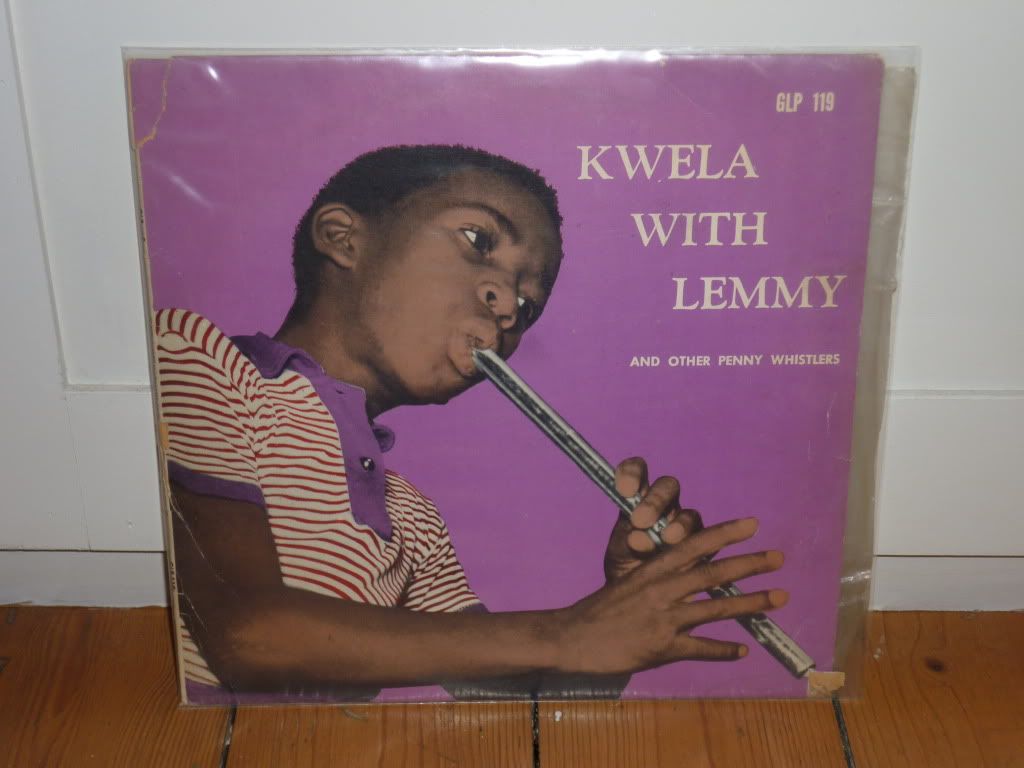
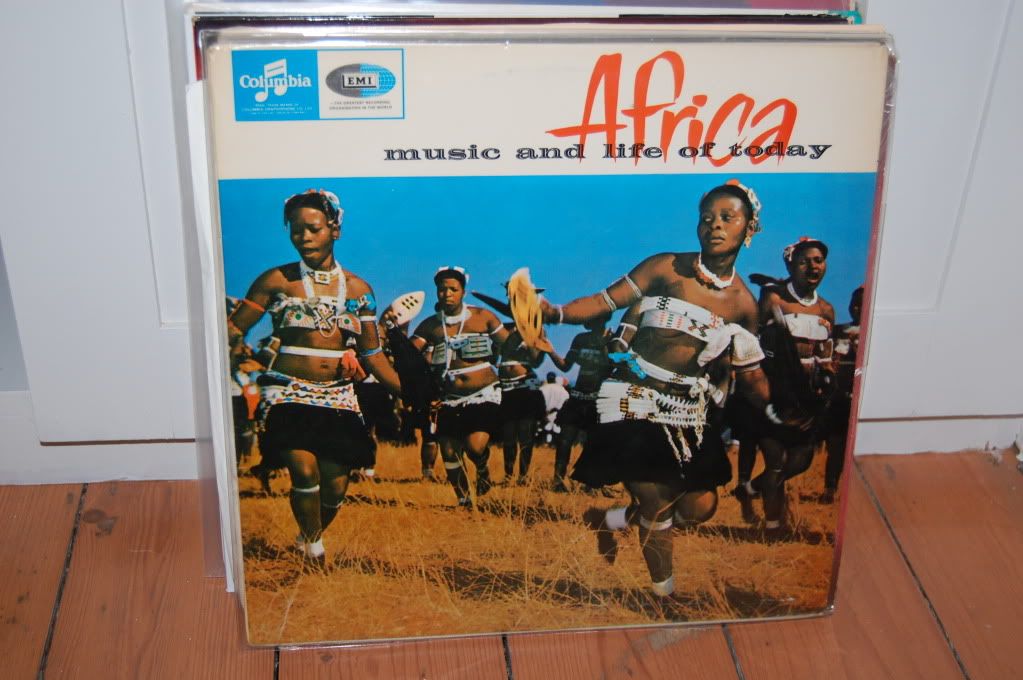
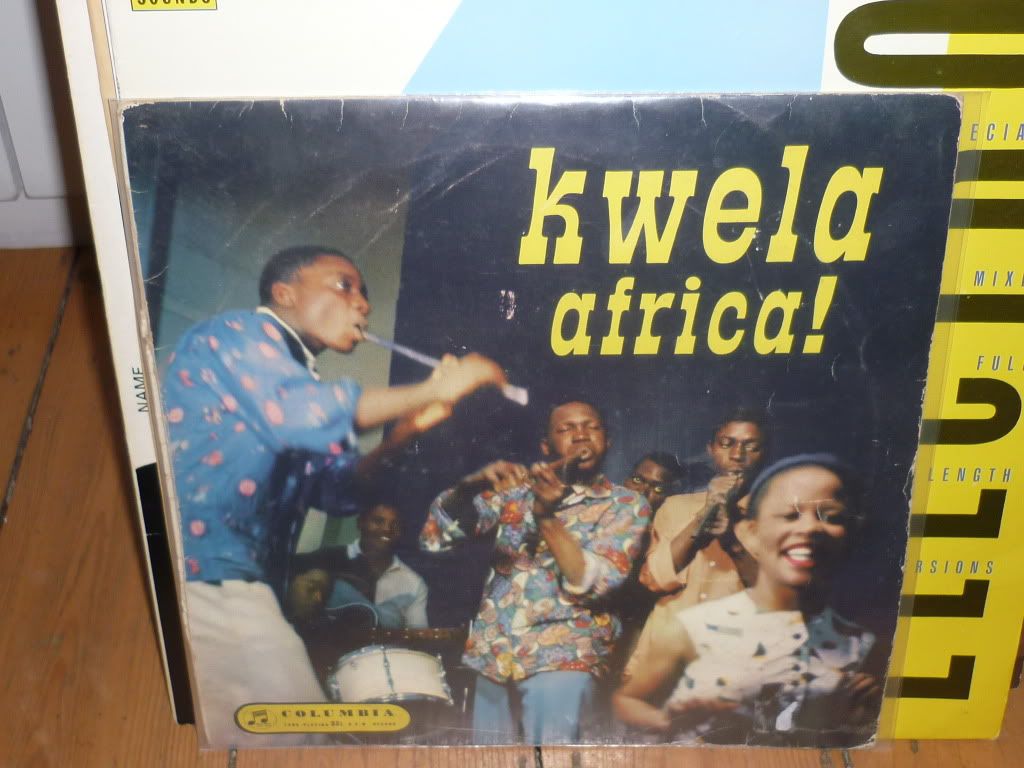
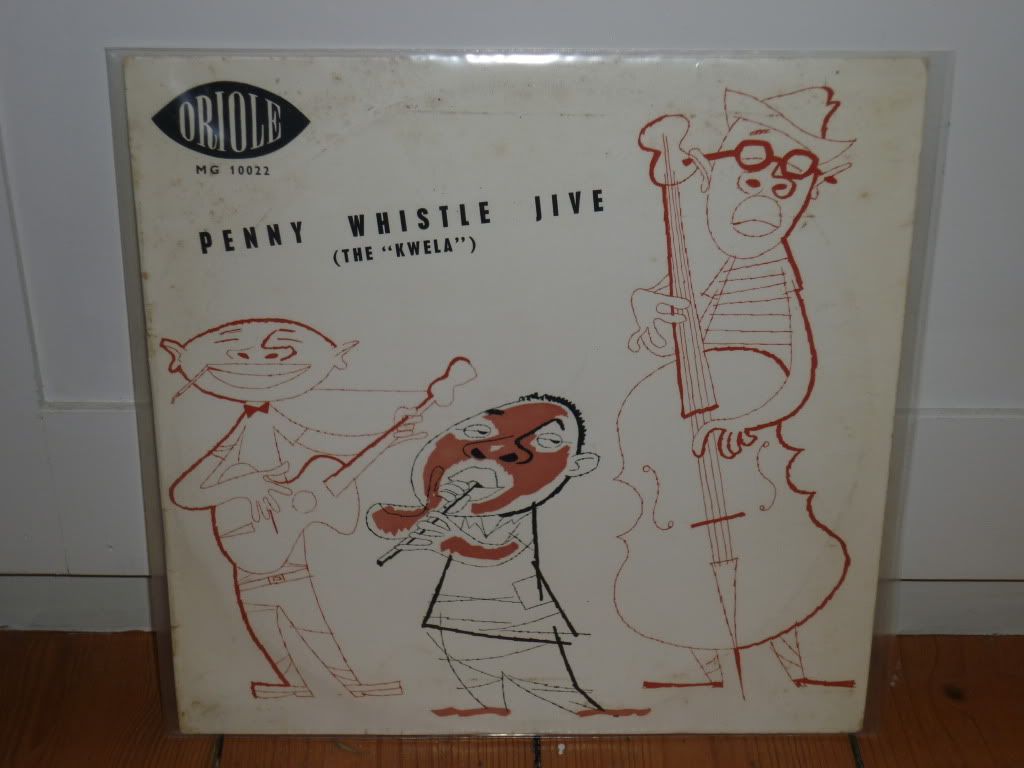
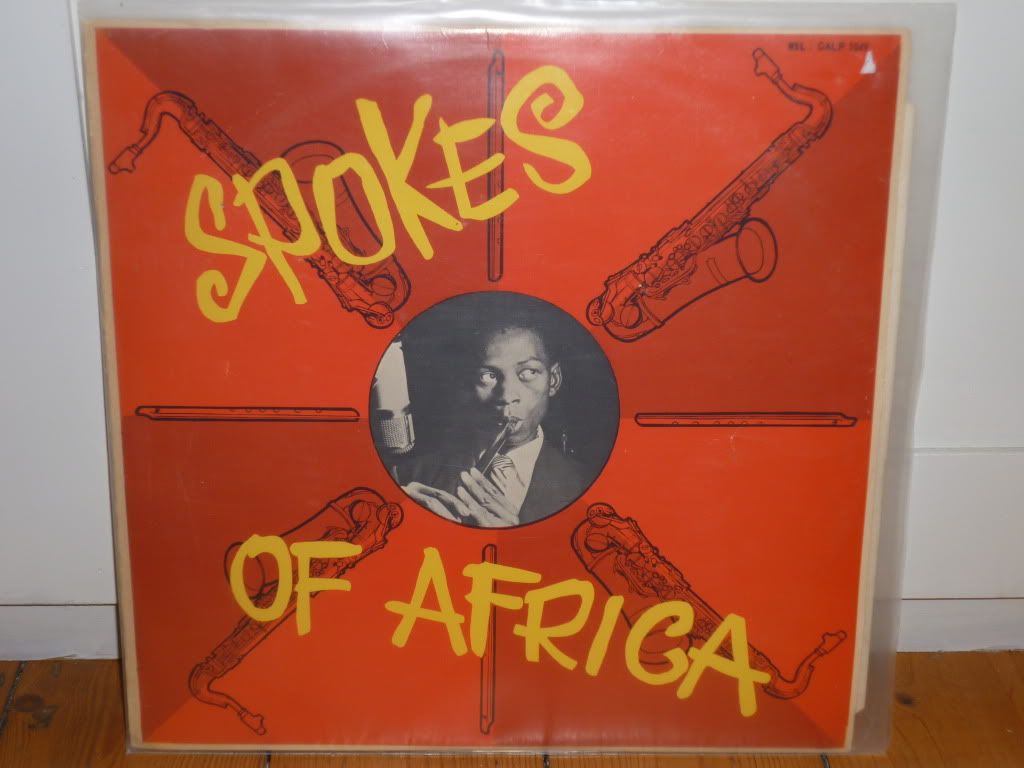
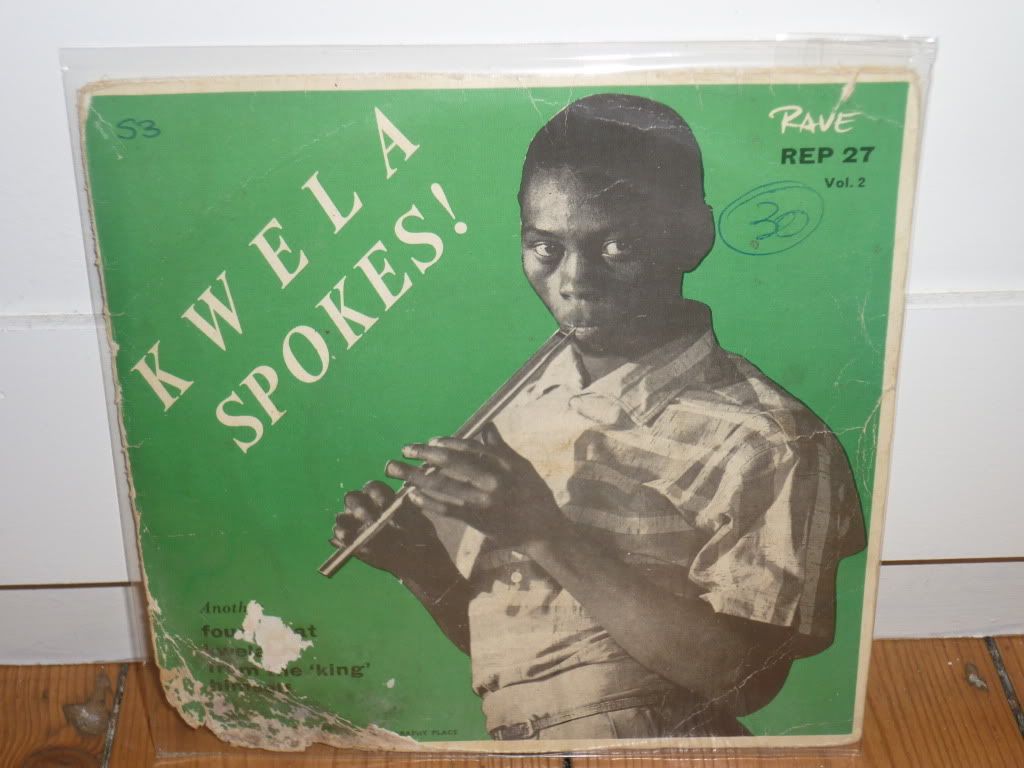
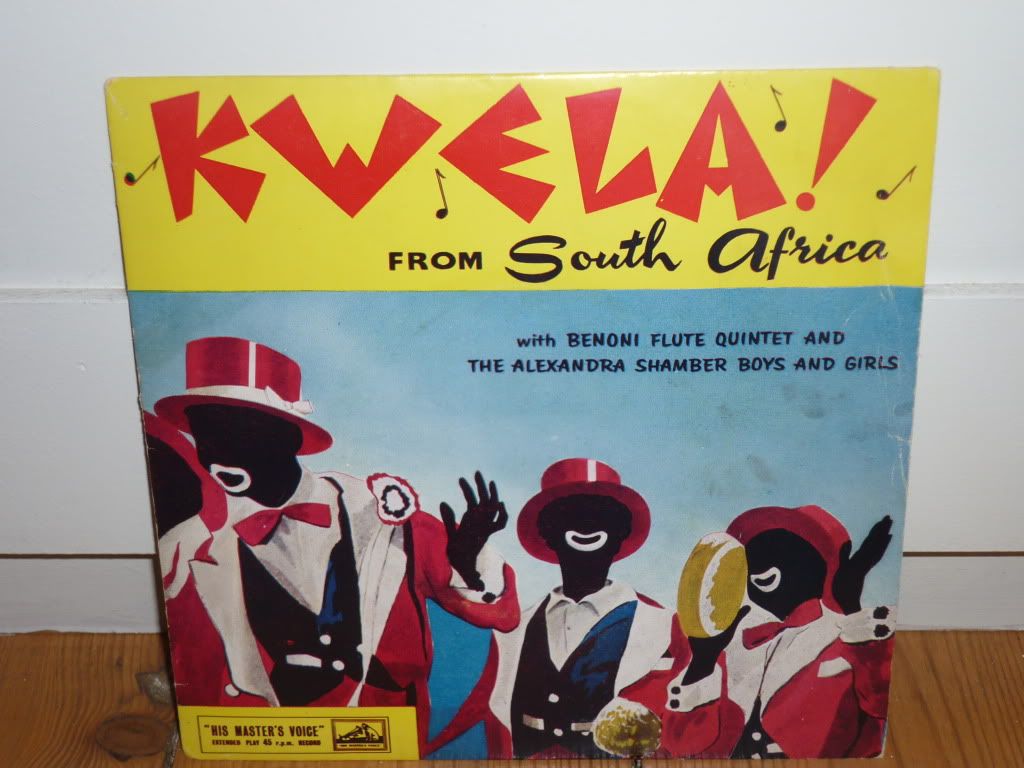
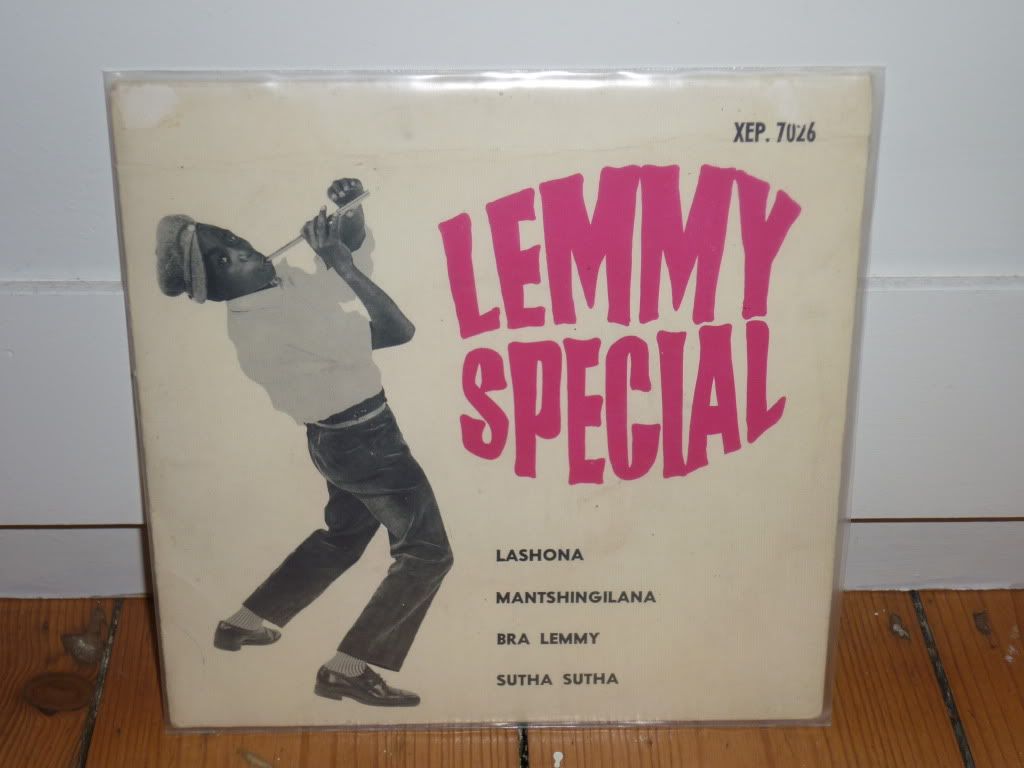
Happy to see such a post.
ReplyDeleteI am also a big fan of southafrican music and I share music tracks through my youtube channel
[youtube.com/alkis09]
Are those vinyls available for downloading ?
Hi Alkis
ReplyDeleteGlad you liked the post
Will check out your youtube channel - sounds interesting
I'm planning on posting more South African stuff so keep watching
I haven't been posting d/l's of the music so far. As a vinyl addicted I'm slightly conflicted about posting albums
But, having said that, I'm working on a 'best of' the kwela and jive stuff that I have and so I'll post that as soon as its ready
I'm originally from London and remember this song and kwela when it hit the charts. I had been a member of a skiffle group in 1954/5 when just about every young kid was and, I agree, the music was similar in its simplicity.
ReplyDeleteI still play in a band where I live in Maine in the USA and one of the songs in our repertoire is "The Lion Sleeps Tonight/Wimoweh" which superceded "Tom Hark" as it hit the Billboard Top Ten in 1951 when Pete Seeger & The Weavers issued a recording of it. I always tell "the story behind the song" when we do it but, while singing it the other evening at a show, I "heard" this other song in my head but couldn't place it. It began bugging me but today I thought of penny whistles and by using "Google" and searching different sites I came across kwela. I played the song again and again on YouTube (isn't technology wonderful, especially at my age!?)and I think we might work on it and include it in our program song list in the future.
Thank you MM for your detailed synopsis.
Peter G.
Thanks for sharing Peter
ReplyDeleteI'm amazed you can play one song and 'hear' another!!!
I hope you will be able to include it
In the meanwhile I am still working on my kwela and jive 'best of' so come back in a few weeks
Thanks
Mat
Find out how THOUSAND of individuals like YOU are working for a LIVING online and are fulfilling their dreams TODAY.
ReplyDeleteSUBSCRIBE NOW
Great reeading this
ReplyDelete